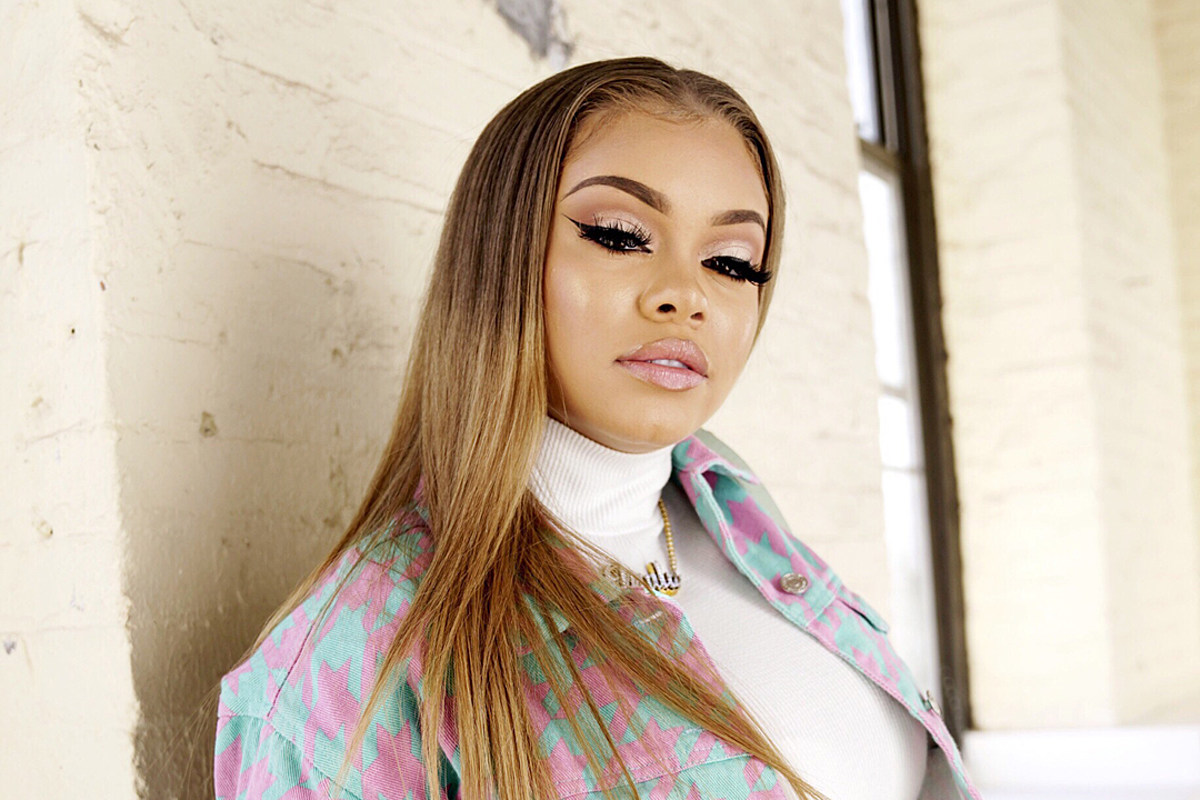How old is Mulatto? Mulatto is a term used to describe a person of mixed racial heritage, typically with one white parent and one black parent. The term is often considered offensive and outdated, and is no longer widely used.
The term "mulatto" was first used in the 16th century to describe people of mixed European and African ancestry. It was originally used in a neutral sense, but over time it came to be used as a racial slur. Today, the term is considered offensive and is no longer used by most people.
There are a number of reasons why the term "mulatto" is considered offensive. First, it is a racial slur that was used to justify slavery and oppression. Second, it is a term that is often used to stereotype people of mixed race. Third, it is a term that can be used to exclude people of mixed race from certain social and economic opportunities.
- Lauryn Hills Wealth Exploring Her Net Worth In 2023
- Jeff Gennette The Loving Husband A Behindthescenes Look At His Personal Life
There are a number of alternatives to the term "mulatto" that are more respectful and inclusive. These terms include "biracial," "multiracial," and "mixed race." These terms are more accurate and less likely to be offensive.
It is important to be aware of the history and implications of the term "mulatto" before using it. This term is considered offensive and outdated, and should not be used to describe people of mixed racial heritage.
How Old Is Mulatto
The term "mulatto" is an outdated and offensive term used to describe a person of mixed racial heritage, typically with one white parent and one black parent. Here are 8 key aspects to consider when discussing "how old is mulatto":
- Historical Significance Of Fashion Icon Vincent Saint Laurent
- Meet Maria Bartiromos Husband Who Is Jonathan Steinberg
- Origin: The term "mulatto" was first used in the 16th century.
- Usage: The term is considered offensive and is no longer widely used.
- Alternatives: More respectful and inclusive terms include "biracial," "multiracial," and "mixed race."
- History: The term "mulatto" was used to justify slavery and oppression.
- Stereotypes: The term is often used to stereotype people of mixed race.
- Exclusion: The term can be used to exclude people of mixed race from certain social and economic opportunities.
- Outdated: The term is considered outdated and should not be used.
- Offensive: The term is offensive and should not be used to describe people of mixed racial heritage.
These key aspects highlight the importance of using respectful and inclusive language when discussing people of mixed racial heritage. The term "mulatto" is an outdated and offensive term that should not be used.
1. Origin
The term "mulatto" has a long and complex history. It was first used in the 16th century to describe people of mixed European and African ancestry. The term was originally used in a neutral sense, but over time it came to be used as a racial slur. Today, the term is considered offensive and is no longer widely used.
- Racial Classification: The term "mulatto" was used to create a racial hierarchy, with people of mixed race being seen as inferior to both white people and black people.
- Social Status: People of mixed race were often denied the same rights and privileges as white people. For example, they were often not allowed to vote, own property, or receive an education.
- Economic Exploitation: People of mixed race were often used as slaves or as cheap labor. They were often paid less than white workers and were not given the same opportunities for advancement.
- Cultural Identity: The term "mulatto" was used to deny people of mixed race their own cultural identity. They were often forced to assimilate into white culture and were not allowed to embrace their African heritage.
The history of the term "mulatto" is a reminder of the racism and discrimination that people of mixed race have faced throughout history. It is important to be aware of this history and to use respectful and inclusive language when discussing people of mixed racial heritage.
2. Usage
The term "mulatto" is considered offensive and is no longer widely used because it is a racial slur that was used to justify slavery and oppression. The term was originally used in a neutral sense, but over time it came to be used to stereotype and exclude people of mixed race. Today, the term is considered outdated and offensive, and should not be used to describe people of mixed racial heritage.
There are a number of reasons why the term "mulatto" is considered offensive. First, it is a racial slur that was used to justify slavery and oppression. Second, it is a term that is often used to stereotype people of mixed race. Third, it is a term that can be used to exclude people of mixed race from certain social and economic opportunities.
There are a number of alternatives to the term "mulatto" that are more respectful and inclusive. These terms include "biracial," "multiracial," and "mixed race." These terms are more accurate and less likely to be offensive.
It is important to be aware of the history and implications of the term "mulatto" before using it. This term is considered offensive and outdated, and should not be used to describe people of mixed racial heritage.
3. Alternatives
The terms "biracial," "multiracial," and "mixed race" are more respectful and inclusive alternatives to the term "mulatto." These terms are more accurate and less likely to be offensive because they do not imply a racial hierarchy or stereotype people of mixed race. For example, the term "biracial" simply means that a person has two parents of different races, while the term "multiracial" means that a person has more than two parents of different races. These terms are more inclusive because they do not exclude people who identify with more than one race.
It is important to use respectful and inclusive language when discussing people of mixed racial heritage. The terms "biracial," "multiracial," and "mixed race" are more respectful and inclusive than the term "mulatto." These terms are more accurate, less likely to be offensive, and more inclusive. It is important to be aware of the history and implications of the term "mulatto" before using it. This term is considered offensive and outdated, and should not be used to describe people of mixed racial heritage.
Here are some examples of how to use the terms "biracial," "multiracial," and "mixed race" in a respectful and inclusive way:
- "Barack Obama is the first biracial president of the United States."
- "Tiger Woods is a multiracial golfer who has won 15 major championships."
- "The mixed race population of the United States is growing rapidly."
By using respectful and inclusive language, we can help to create a more just and equitable society for all.
4. History
The term "mulatto" was used to justify slavery and oppression because it created a racial hierarchy in which people of mixed race were seen as inferior to both white people and black people. This hierarchy was used to justify the enslavement of people of African descent, as well as the discrimination and segregation that they faced.
The term "mulatto" was also used to deny people of mixed race their own cultural identity. They were often forced to assimilate into white culture and were not allowed to embrace their African heritage. This denial of cultural identity had a lasting impact on the lives of people of mixed race, and it continues to affect them today.
The history of the term "mulatto" is a reminder of the racism and discrimination that people of mixed race have faced throughout history. It is important to be aware of this history and to use respectful and inclusive language when discussing people of mixed racial heritage.
The term "mulatto" is still used today, but it is considered offensive and outdated. It is important to avoid using this term and to use more respectful and inclusive terms such as "biracial," "multiracial," or "mixed race."
5. Stereotypes
The term "mulatto" is often used to stereotype people of mixed race. This can have a negative impact on the lives of people of mixed race, as they may be seen as being less intelligent, less capable, or less worthy of respect than people of other races. Stereotypes can also lead to discrimination against people of mixed race, as they may be denied opportunities for education, employment, and housing.
One of the most common stereotypes about people of mixed race is that they are confused about their racial identity. This stereotype is often used to justify discrimination against people of mixed race, as it is assumed that they do not know where they belong. However, this stereotype is simply not true. People of mixed race can have a strong sense of racial identity, and they can be proud of their heritage.
Another common stereotype about people of mixed race is that they are more likely to be criminals than people of other races. This stereotype is also not true. In fact, studies have shown that people of mixed race are no more likely to commit crimes than people of other races. This stereotype is often used to justify discrimination against people of mixed race, as it is assumed that they are dangerous and should be feared.
Stereotypes about people of mixed race are harmful and inaccurate. They can lead to discrimination and violence against people of mixed race. It is important to challenge these stereotypes and to promote a more inclusive and just society.
6. Exclusion
The term "mulatto" has historically been used to exclude people of mixed race from certain social and economic opportunities. This exclusion has taken many forms, including but not limited to:
- Educational opportunities: People of mixed race have often been denied access to quality education, including higher education.
- Employment opportunities: People of mixed race have often been denied access to certain jobs and professions, especially those that are considered to be prestigious or high-paying.
- Housing opportunities: People of mixed race have often been denied access to quality housing, including mortgages and loans.
- Political participation: People of mixed race have often been denied the right to vote and to hold public office.
This exclusion has had a devastating impact on the lives of people of mixed race. It has limited their access to education, employment, housing, and political participation. As a result, people of mixed race have often been denied the opportunity to reach their full potential and to contribute to society.
The term "mulatto" is a reminder of the racism and discrimination that people of mixed race have faced throughout history. It is important to be aware of this history and to use respectful and inclusive language when discussing people of mixed racial heritage.
7. Outdated
The term "mulatto" is considered outdated and should not be used because it is a racial slur that was used to justify slavery and oppression. The term has a long and complex history, and it has been used to exclude people of mixed race from certain social and economic opportunities. Today, the term is considered offensive and outdated, and it should not be used to describe people of mixed racial heritage.
The term "outdated" means that something is no longer in fashion or use. The term "mulatto" is outdated because it is a racial slur that is no longer acceptable to use. It is important to use respectful and inclusive language when discussing people of mixed racial heritage. The terms "biracial," "multiracial," and "mixed race" are more respectful and inclusive alternatives to the term "mulatto."
It is important to be aware of the history of the term "mulatto" and to avoid using it. The term is offensive and outdated, and it should not be used to describe people of mixed racial heritage. By using respectful and inclusive language, we can help to create a more just and equitable society for all.
8. Offensive
The term "mulatto" is offensive because it is a racial slur that was used to justify slavery and oppression. It is a term that has been used to exclude people of mixed race from certain social and economic opportunities. Today, the term is considered outdated and offensive, and it should not be used to describe people of mixed racial heritage.
There are a number of reasons why the term "mulatto" is offensive. First, it is a racial slur that was used to justify slavery and oppression. Second, it is a term that is often used to stereotype people of mixed race. Third, it is a term that can be used to exclude people of mixed race from certain social and economic opportunities.
The connection between "Offensive: The term is offensive and should not be used to describe people of mixed racial heritage" and "how old is mulatto" is that the term "mulatto" is often used to describe people of mixed race. This can be offensive because it can imply that people of mixed race are not as worthy of respect as people of other races. It can also be offensive because it can deny people of mixed race their own cultural identity.
It is important to use respectful and inclusive language when discussing people of mixed racial heritage. The terms "biracial," "multiracial," and "mixed race" are more respectful and inclusive alternatives to the term "mulatto." These terms are more accurate and less likely to be offensive.
By using respectful and inclusive language, we can help to create a more just and equitable society for all.
FAQs on "How Old Is Mulatto"
This section provides answers to frequently asked questions about "how old is mulatto".
Question 1: What is the origin of the term "mulatto"?Answer: The term "mulatto" was first used in the 16th century to describe people of mixed European and African ancestry.
Question 2: Why is the term "mulatto" considered offensive?Answer: The term "mulatto" is considered offensive because it is a racial slur that was used to justify slavery and oppression.
Question 3: What are some alternatives to the term "mulatto"?Answer: Some alternatives to the term "mulatto" include "biracial," "multiracial," and "mixed race."
Question 4: Why should we avoid using the term "mulatto"?Answer: We should avoid using the term "mulatto" because it is offensive and outdated. It is important to use respectful and inclusive language when discussing people of mixed racial heritage.
Question 5: What is the significance of using respectful language when discussing people of mixed racial heritage?Answer: Using respectful language when discussing people of mixed racial heritage helps to create a more just and equitable society for all.
Summary: The term "mulatto" is an outdated and offensive term that should not be used to describe people of mixed racial heritage. There are many respectful and inclusive alternatives to this term, such as "biracial," "multiracial," and "mixed race." By using respectful language, we can help to create a more just and equitable society for all.
Transition: To learn more about the history and implications of the term "mulatto," please refer to the following resources:
- NAACP: Brown v. Board of Education
- PBS: The Freedom Riders
- History.com: Civil Rights Act
Conclusion
The term "mulatto" is an outdated and offensive term that should not be used to describe people of mixed racial heritage. It is a racial slur that was used to justify slavery and oppression. Today, the term is considered outdated and offensive, and it should not be used to describe people of mixed racial heritage.
There are many respectful and inclusive alternatives to the term "mulatto," such as "biracial," "multiracial," and "mixed race." By using respectful language, we can help to create a more just and equitable society for all.
It is important to be aware of the history and implications of the term "mulatto" before using it. This term is considered offensive and outdated, and it should not be used to describe people of mixed racial heritage. By using respectful and inclusive language, we can help to create a more just and equitable society for all.



Detail Author:
- Name : Esta Moen
- Username : dfritsch
- Email : batz.douglas@yahoo.com
- Birthdate : 1999-02-10
- Address : 8667 Sophia Mission Port Sigurd, MS 69568
- Phone : 1-808-858-9646
- Company : Sauer, Runolfsson and Yundt
- Job : Equal Opportunity Representative
- Bio : Minus adipisci suscipit unde. Pariatur sed ex explicabo debitis id.
Socials
instagram:
- url : https://instagram.com/fatimarobel
- username : fatimarobel
- bio : Consequatur consequuntur quasi numquam itaque minus atque. Voluptatem ut quisquam autem assumenda.
- followers : 2131
- following : 1766
tiktok:
- url : https://tiktok.com/@fatima_robel
- username : fatima_robel
- bio : Fuga nemo minus ex repudiandae dolores illo consequatur.
- followers : 5579
- following : 1892
linkedin:
- url : https://linkedin.com/in/frobel
- username : frobel
- bio : Ut cumque in qui nostrum voluptatem.
- followers : 1330
- following : 1247
facebook:
- url : https://facebook.com/fatima.robel
- username : fatima.robel
- bio : Sit corporis perferendis reiciendis nobis.
- followers : 3552
- following : 1632
twitter:
- url : https://twitter.com/frobel
- username : frobel
- bio : Perferendis aut at suscipit dolores. Blanditiis eaque aliquam ut qui. Reprehenderit nihil fugit modi corrupti omnis facere.
- followers : 1678
- following : 1943